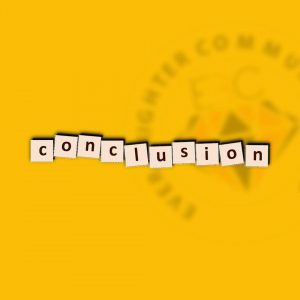By Ngozi Adighibe
Following our posts on the struggle to define online sociality, let’s take a look at Wikipedia.
Wikipedia and the “neutrality principle”.
Lastly, I cannot but write about Wikipedia, which asides from being the only non-profit social media platform discussed in this book, could also be deduced as the author’s favourite. Van Dijck (2013) explained that “Amid a sea of goofy videos, pointless babble, tweets, endless updates, and nippy snapshots, Wikipedia’s encyclopedic content at least has the dignified status of being verified, impartial, and durable.”
I do not contest the logic of this statement, but during my masters degree education, I lost a point in one of my class assignments for citing Wikipedia as a source. Hence, I cannot deduce the credibility of this site or how widely it is accepted if it’s yet to be embraced in academic research.
However, the author of the book, “The culture of connectivity: A critical history of social media,” made a valid point as regards the “neutrality principle” applied in the operations of the site, in comparison to the “popularity principle” that is observed in other social media platforms (Van Dijck, 2013). Other platforms promote people, tweets, videos that are considered to be popular online, but Wikipedia only accepts articles that are written from a neutral point of view – NPoV (Van Dijck, 2013).
For me, this was the only platform I was intrigued by its business model. I was curious to learn how it was run with no financial profits, and how it could afford to pay the staff of the Wikipedia foundation. Eventually, as I continued to read, I learnt that it had established a mutually beneficial relationship with Facebook and Google, both of which often make considerable donations to support the site. How neutral is it then, you may want to ask? Your guess is as good as mine.
The Conclusion of the book
According to Van Dijck (2013), owners in the ecosystem of connective media have adopted three ways to ensure that users stay connected to their platforms. They include the strategies, “Lock in, Fence off and Opt out.” Here is a breakdown of how it works. The user is lured in and “locked-in” from liking a page, to commenting on it and then sharing it; to being recommended to play candy crush, to downloading it and then, paying to gain access to the next level. Then, the user is “fenced in” through ownership and partnership across various platforms (Vertical integration).
For instance, Google has ownership of Google+, YouTube, Gmail, Google search, Google music store, Google wallet, partnership with Wikipedia and other platforms (Van Dijck, 2013). So, an individual, who seeks information, clicks on the web-page of Google search and from there is asked to log in to gain broader access. This access opens the door for the user to be flooded with notifications of other platforms tied to Google that are available to him or her. Then, the cycle continues as long as the user keeps on clicking until it becomes difficult to “opt-out.”
Sometimes, opting out is harder for some, because of the technicality involved in the opting-out process. But, for some others, it is the fear of being isolated from the world of connectivity, which has become the norm in society.
So what?
No one can escape being a part of this world of connectivity, mostly because it has been embraced in most societies and has become a necessary criterion to thrive in this “global village.” Therefore, I subscribe to this quote from the Bible, “Wisdom is the principal thing; therefore get wisdom. And in all your getting, get understanding” (Proverbs 4:7 (NKJV)). Information is available everywhere now; so, learn about these platforms and know how best to utilize them to your advantage.
Till we meet next time, be wise!




Pingback: Technology and the Loss of Democracy 2: The Elephant in the Digital Room | Everbrighter Communications
I was recommended this website by my cousin. I am no longer certain whether this put up is written by him as nobody else realize such unique about my problem.
You are amazing! Thanks!
You are so cool! I don’t suppose I’ve read through something like that before.
So nice to discover another person with a few unique thoughts
on this subject. Seriously.. many thanks for starting this
up. This website is something that’s needed on the web, someone with a
little originality!